Module 4Healthy food Unit1 We’ve got lots of apples.课件(共41张PPT)
文档属性
| 名称 | Module 4Healthy food Unit1 We’ve got lots of apples.课件(共41张PPT) |
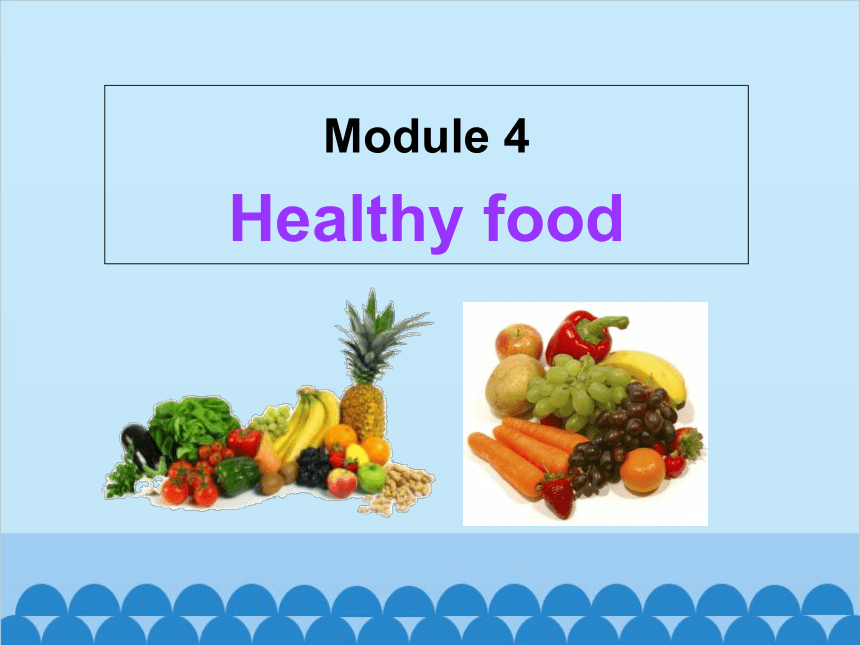
|
|
| 格式 | ppt | ||
| 文件大小 | 1.8MB | ||
| 资源类型 | 教案 | ||
| 版本资源 | 外研版 | ||
| 科目 | 英语 | ||
| 更新时间 | 2022-10-29 00:00:00 | ||
图片预览


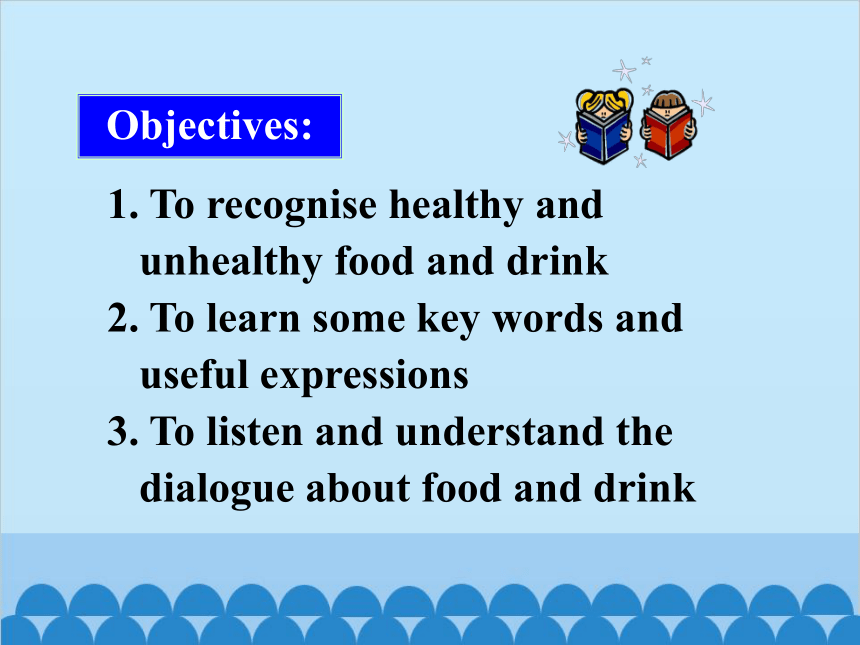

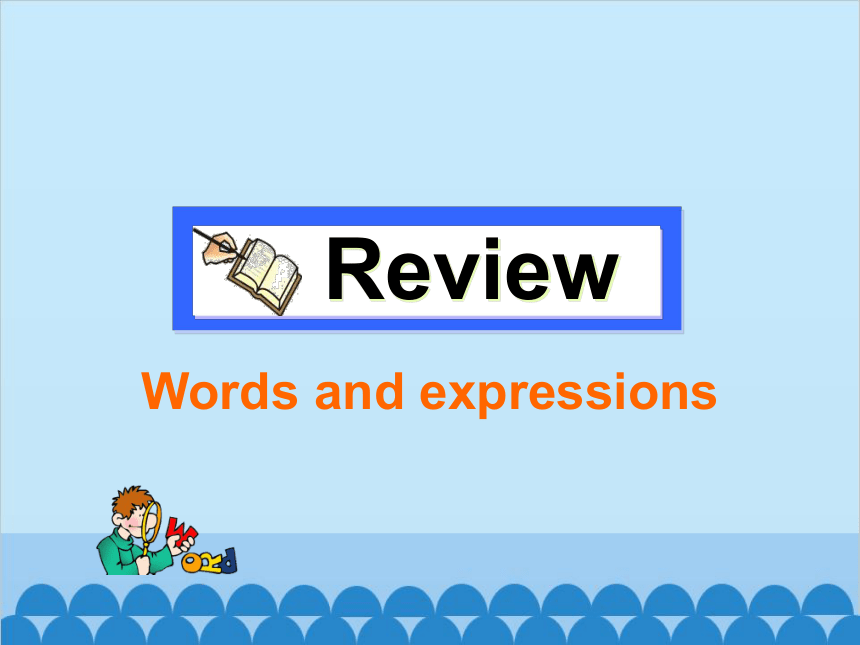
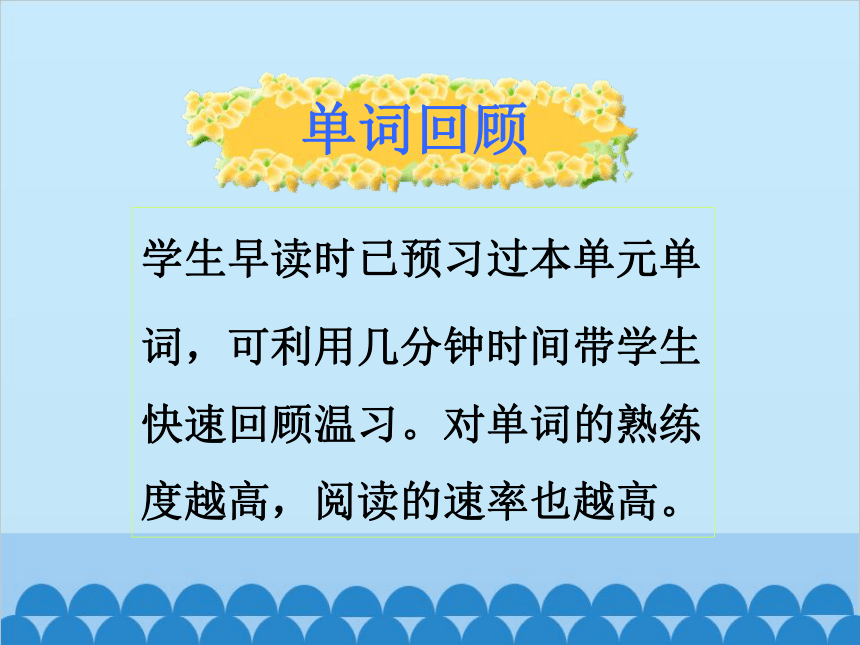
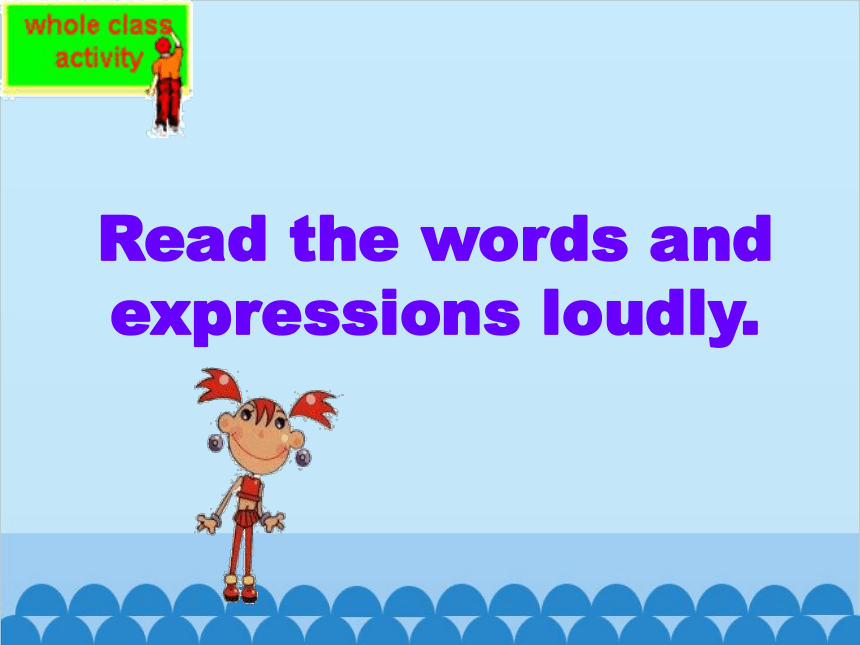
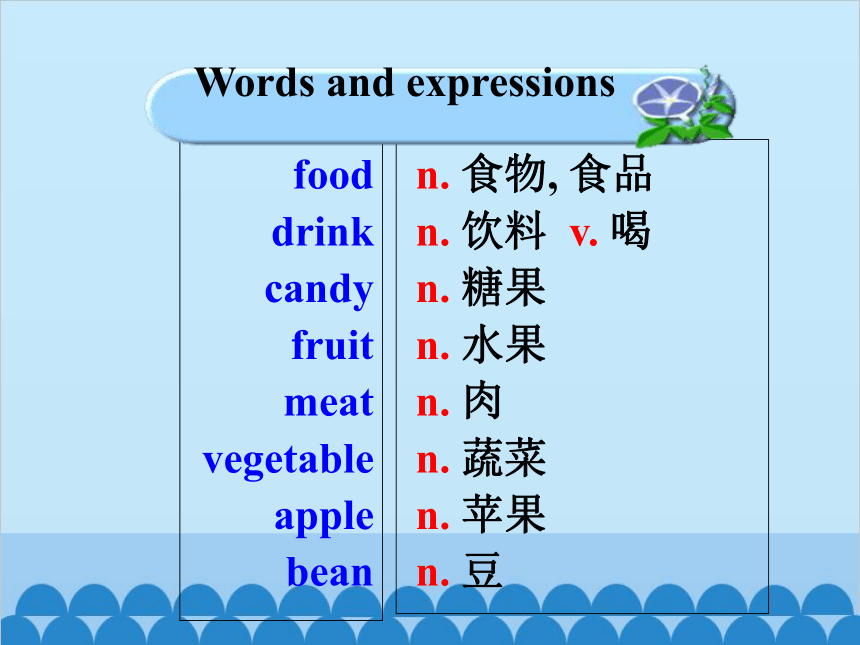

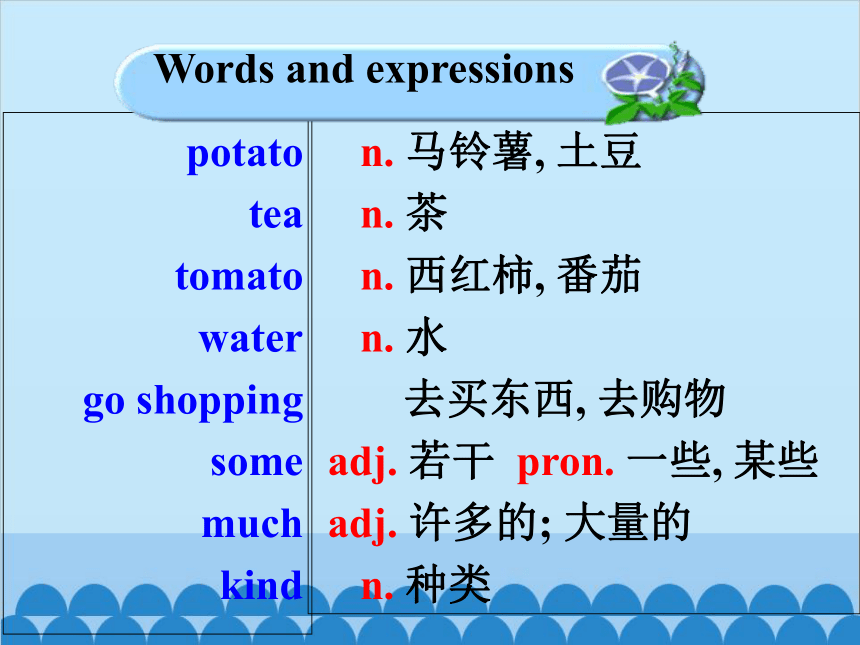
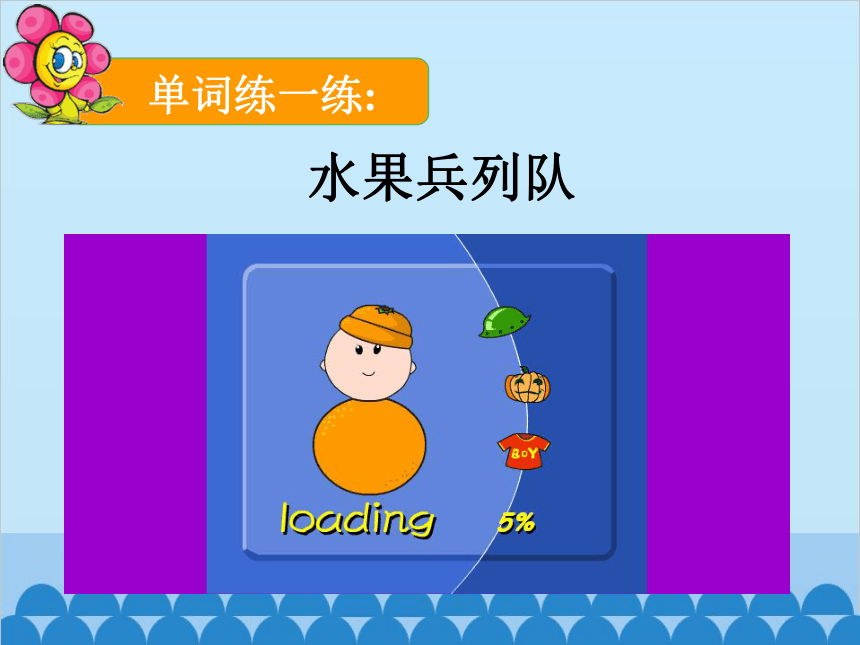
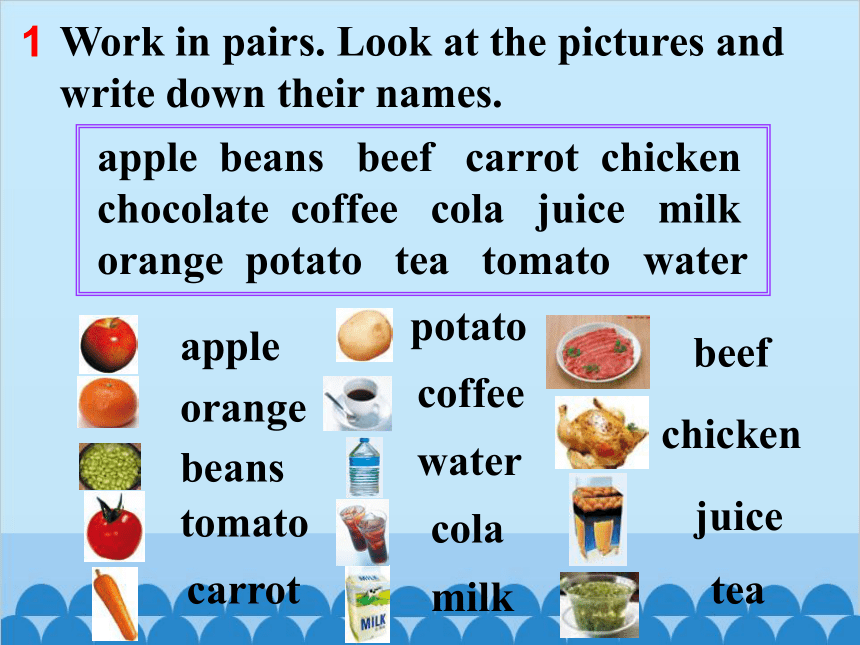
文档简介
(共41张PPT)
Module 4
Healthy food
Unit 1
We’ve got lots of apples.
1. To recognise healthy and unhealthy food and drink
2. To learn some key words and useful expressions
3. To listen and understand the dialogue about food and drink
Objectives:
Words:
candy, chocolate, beef, meat, vegetables, potato, coffee
Phrases:
food and drink lots of…
Patterns:
Let’s go shopping for…
Let’s get some…
…is good/bad for you.
What kind of fruit
Review
Words and expressions
单词回顾
学生早读时已预习过本单元单
词,可利用几分钟时间带学生快速回顾温习。对单词的熟练度越高,阅读的速率也越高。
Read the words and expressions loudly.
food
drink
candy
fruit
meat
vegetable
apple
bean
n. 食物, 食品
n. 饮料 v. 喝
n. 糖果
n. 水果
n. 肉
n. 蔬菜
n. 苹果
n. 豆
Words and expressions
beef
carrot
chicken
chocolate
coffee
cola
juice
milk
n. 牛肉
n. 胡萝卜
n. 鸡肉
n. 巧克力
n. 咖啡
n. 可乐
n. 果汁
n. 牛奶
Words and expressions
potato
tea
tomato
water
go shopping
some
much
kind
n. 马铃薯, 土豆
n. 茶
n. 西红柿, 番茄
n. 水
去买东西, 去购物
adj. 若干 pron. 一些, 某些
adj. 许多的; 大量的
n. 种类
Words and expressions
水果兵列队
单词练一练:
Work in pairs. Look at the pictures and write down their names.
apple beans beef carrot chicken
chocolate coffee cola juice milk
orange potato tea tomato water
apple
orange
beans
tomato
carrot
coffee
water
cola
milk
beef
chicken
juice
tea
potato
1
Label the food in the pictures with the words from the box.
candy fruit meat vegetables
fruit
candy
meat
vegetables
2
Complete the table.
FOOD
meat
fruit
beef
chicken
bean
carrot
potato
tomato
apple
orange
vegetables
Listen and check (√) the food and drink Betty and her mother have got.
apples
beans
beef
carrots
chicken
coffee
cola
juice
milk
oranges
potatoes
tea
tomatoes
water
3
√
√
√
√
√
√
1. Healthy food
健康的饮食
healthy是以health为词根派生出的形容词。我们以名词health为词根, 可以派生出形容词healthy, 副词healthily, 也可以在形容词healthy之前加前缀-un, 构成反义词unhealthy,意为“不健康的”。
His grandfather is in good health.
他祖父身体健康。
We have to eat and drink healthily.
我们必须健康地饮食。
Is Coke an unhealthy drink
可乐是一种不健康的饮料吗
2. Too much chocolate isn’t good for you.
吃太多巧克力对你没有好处。
too much 意思是“太多”,用来修饰不可 数名词,例如:
I have got too much homework to do today. 我今天有太多的作业要做。
too many意思也是“太多”,用来修饰可数名词复数形式,如:
There are too many people in the shopping centre.
购物中心里人太多。
另外,be good for 的意思是“对……有好处”,它的反义词组是be bad for, 如:
Watching too much TV isn’t good for you.
电视看得太多对你不好。
Smoking is bad for your health.
吸烟有害你的健康。
3. All right… 好的……
这里的all right表示同意别人所说的事情。
— I think you should start now.
我认为你应该现在开始了。
— All right.
好的。
all right 可以有多种含义,用于多种场合。Tom, you will lock the door, all right
汤姆,你来锁门,好吗?
上句中的all right 我们可以译为“明白了吗?是吧?对吧?”等,表示向对方确认
他会同意或理解你所说的话。
Complete the table.
Things Tony’s family has got at home Things Tony’s family hasn’t got at home
Food chocolate, chicken, oranges
Drink Orange juice, coffee, cola
A: Have we got any …
B: Yes, we have got … No, we haven’t …
Fill in the blanks.
A= Tony’s dad B=Tony
A: Tony, let’s __ _______ for food and drink. Now, we haven’t __ ____ meat. Let’s get some chicken.
B: OK. Have we ___ any ________
A: Yes, we have. ___ _____ chocolate isn’t ____ __ you. Let’s get some ______.
B: What ____ __ fruit Apples
got any
got chocolate
Too much
good for
go shopping
melons
kind of
A: No, we’ve got ___ __ apples. We ______ ___ any oranges, so let’s get some.
B: OK. ___ ______ some orange juice
A: Yes, good idea! And coffee. Let’s get some for your ____. She hasn’t ___ __ ____.
B: All right, some coffee for Mum, and some ___ for me. I haven’t got any cola.
A: No cola! Cola _ ___ ___ you! How about some tea
B: Oh, too bad!
lots of
haven’t got
How about
mum
got any coffee
cola
is bad for
Work in pairs. Talk about Tony’s shopping.
A: Have we got any …
B: Yes, we have. We’ve got some… /No, we haven’t.
6
Listen and repeat.
/s/ drinks /t/ tea tomato water
/z/ apples potatoes vegetables /d/ bad food idea
7
Listen and choose /s/ or /z/.
1 apples 2 beans 3 drinks 4 potatoes
8
A: Make a list of things you need.
B: Make a list of things you’ve got.
Now ask and answer.
— Have we got any…
— Yes, we have. We’ve got some…/No, we haven’t.
Work in pairs. Make a shopping list.
9
orange, juice …
- Have you got any …
- Yes, I’ve got some …
- No, I haven’t got any …
本课时主要句型
课后回顾
Let’s go shopping for …
How about …
— Have we got any …
— Yes, we’ve got some …
— No, we haven’t.
We haven’t got any …
一、根据句意和首字母提示填写单词。
1. There are some o______ and apples
here for you.
2. Meat, v________ and fruit are healthy
food.
3. We can d____ milk and water.
4. Chicken, potatoes and melons are
h_____ food.
5. Pork and b___ are meat.
ranges
egetables
rink
ealthy
eef
Quiz
1. Have you ___ (get, got) a pen
2. I haven’t got ___ (some, any) money.
3. There are two ___ (childs, children).
4. My mother buys some ___ (meat,
meats).
5. ___ (Is, Are) there any beef in the
dining hall
二、选用合适单词完成句子。
1. _____ ___ many books in her bag.
2. I _____ ___ three sisters.
3. __ _____ a basketball under Tony’s
bed
4. My brother ___ ___ a new bike.
5. ____ your sister ___ a computer on
the desk
There
are
have
got
Is
there
has
got
Has
got
三、用 there be / have (has) got / has (have) 的正确形式填空。
四、根据汉语提示完成句子。
1. 你总是吃健康食品吗?
Do you always eat _______ ____
We cannot live for long without ____ ___ _____.
2. 我们没有食物和饮料就活不了多久。
healthy food
food and drink
3. 我们吃蔬菜,水果和肉。
We eat _________, ____ and _____.
4. 我们没有肉,只能吃些苹果了。
We ______ ___ ___ meat, so we'll have to eat _____ ______.
5. 我们还有啤酒和葡萄酒吗?
_____ __ ___ ___ beer and wine
vegetables fruit meat
haven’t got any
some apples
Have we got any
There are five people in my family.
(对划线部分提问)
_____________________________
_____________________________
2. I have got a little brother.
(用Jim代替I改写句子)
_____________________________
五、 根据括号内的要求改写下列句子。
How many people are there in
your family
Jim has got a little brother.
3. His brother has got some new books.
(变为一般疑问句)
______________________________
4. She has got some new pens.
(变为否定句)
______________________________
5. I have got a big family.
(用small family变为选择疑问句)
_______________________________
_______________________________
Have you got a big family or a small family
Has his brother got any new books
She hasn’t got any new pens.
Homework
Remember all the new words
and expressions we’ve learned
today.
2. Write something about what you
have got and what you haven’t
got.
1. To preview the new words and
expressions in unit 2.
2. To preview the passage in unit 2.
Module 4
Healthy food
Unit 1
We’ve got lots of apples.
1. To recognise healthy and unhealthy food and drink
2. To learn some key words and useful expressions
3. To listen and understand the dialogue about food and drink
Objectives:
Words:
candy, chocolate, beef, meat, vegetables, potato, coffee
Phrases:
food and drink lots of…
Patterns:
Let’s go shopping for…
Let’s get some…
…is good/bad for you.
What kind of fruit
Review
Words and expressions
单词回顾
学生早读时已预习过本单元单
词,可利用几分钟时间带学生快速回顾温习。对单词的熟练度越高,阅读的速率也越高。
Read the words and expressions loudly.
food
drink
candy
fruit
meat
vegetable
apple
bean
n. 食物, 食品
n. 饮料 v. 喝
n. 糖果
n. 水果
n. 肉
n. 蔬菜
n. 苹果
n. 豆
Words and expressions
beef
carrot
chicken
chocolate
coffee
cola
juice
milk
n. 牛肉
n. 胡萝卜
n. 鸡肉
n. 巧克力
n. 咖啡
n. 可乐
n. 果汁
n. 牛奶
Words and expressions
potato
tea
tomato
water
go shopping
some
much
kind
n. 马铃薯, 土豆
n. 茶
n. 西红柿, 番茄
n. 水
去买东西, 去购物
adj. 若干 pron. 一些, 某些
adj. 许多的; 大量的
n. 种类
Words and expressions
水果兵列队
单词练一练:
Work in pairs. Look at the pictures and write down their names.
apple beans beef carrot chicken
chocolate coffee cola juice milk
orange potato tea tomato water
apple
orange
beans
tomato
carrot
coffee
water
cola
milk
beef
chicken
juice
tea
potato
1
Label the food in the pictures with the words from the box.
candy fruit meat vegetables
fruit
candy
meat
vegetables
2
Complete the table.
FOOD
meat
fruit
beef
chicken
bean
carrot
potato
tomato
apple
orange
vegetables
Listen and check (√) the food and drink Betty and her mother have got.
apples
beans
beef
carrots
chicken
coffee
cola
juice
milk
oranges
potatoes
tea
tomatoes
water
3
√
√
√
√
√
√
1. Healthy food
健康的饮食
healthy是以health为词根派生出的形容词。我们以名词health为词根, 可以派生出形容词healthy, 副词healthily, 也可以在形容词healthy之前加前缀-un, 构成反义词unhealthy,意为“不健康的”。
His grandfather is in good health.
他祖父身体健康。
We have to eat and drink healthily.
我们必须健康地饮食。
Is Coke an unhealthy drink
可乐是一种不健康的饮料吗
2. Too much chocolate isn’t good for you.
吃太多巧克力对你没有好处。
too much 意思是“太多”,用来修饰不可 数名词,例如:
I have got too much homework to do today. 我今天有太多的作业要做。
too many意思也是“太多”,用来修饰可数名词复数形式,如:
There are too many people in the shopping centre.
购物中心里人太多。
另外,be good for 的意思是“对……有好处”,它的反义词组是be bad for, 如:
Watching too much TV isn’t good for you.
电视看得太多对你不好。
Smoking is bad for your health.
吸烟有害你的健康。
3. All right… 好的……
这里的all right表示同意别人所说的事情。
— I think you should start now.
我认为你应该现在开始了。
— All right.
好的。
all right 可以有多种含义,用于多种场合。Tom, you will lock the door, all right
汤姆,你来锁门,好吗?
上句中的all right 我们可以译为“明白了吗?是吧?对吧?”等,表示向对方确认
他会同意或理解你所说的话。
Complete the table.
Things Tony’s family has got at home Things Tony’s family hasn’t got at home
Food chocolate, chicken, oranges
Drink Orange juice, coffee, cola
A: Have we got any …
B: Yes, we have got … No, we haven’t …
Fill in the blanks.
A= Tony’s dad B=Tony
A: Tony, let’s __ _______ for food and drink. Now, we haven’t __ ____ meat. Let’s get some chicken.
B: OK. Have we ___ any ________
A: Yes, we have. ___ _____ chocolate isn’t ____ __ you. Let’s get some ______.
B: What ____ __ fruit Apples
got any
got chocolate
Too much
good for
go shopping
melons
kind of
A: No, we’ve got ___ __ apples. We ______ ___ any oranges, so let’s get some.
B: OK. ___ ______ some orange juice
A: Yes, good idea! And coffee. Let’s get some for your ____. She hasn’t ___ __ ____.
B: All right, some coffee for Mum, and some ___ for me. I haven’t got any cola.
A: No cola! Cola _ ___ ___ you! How about some tea
B: Oh, too bad!
lots of
haven’t got
How about
mum
got any coffee
cola
is bad for
Work in pairs. Talk about Tony’s shopping.
A: Have we got any …
B: Yes, we have. We’ve got some… /No, we haven’t.
6
Listen and repeat.
/s/ drinks /t/ tea tomato water
/z/ apples potatoes vegetables /d/ bad food idea
7
Listen and choose /s/ or /z/.
1 apples 2 beans 3 drinks 4 potatoes
8
A: Make a list of things you need.
B: Make a list of things you’ve got.
Now ask and answer.
— Have we got any…
— Yes, we have. We’ve got some…/No, we haven’t.
Work in pairs. Make a shopping list.
9
orange, juice …
- Have you got any …
- Yes, I’ve got some …
- No, I haven’t got any …
本课时主要句型
课后回顾
Let’s go shopping for …
How about …
— Have we got any …
— Yes, we’ve got some …
— No, we haven’t.
We haven’t got any …
一、根据句意和首字母提示填写单词。
1. There are some o______ and apples
here for you.
2. Meat, v________ and fruit are healthy
food.
3. We can d____ milk and water.
4. Chicken, potatoes and melons are
h_____ food.
5. Pork and b___ are meat.
ranges
egetables
rink
ealthy
eef
Quiz
1. Have you ___ (get, got) a pen
2. I haven’t got ___ (some, any) money.
3. There are two ___ (childs, children).
4. My mother buys some ___ (meat,
meats).
5. ___ (Is, Are) there any beef in the
dining hall
二、选用合适单词完成句子。
1. _____ ___ many books in her bag.
2. I _____ ___ three sisters.
3. __ _____ a basketball under Tony’s
bed
4. My brother ___ ___ a new bike.
5. ____ your sister ___ a computer on
the desk
There
are
have
got
Is
there
has
got
Has
got
三、用 there be / have (has) got / has (have) 的正确形式填空。
四、根据汉语提示完成句子。
1. 你总是吃健康食品吗?
Do you always eat _______ ____
We cannot live for long without ____ ___ _____.
2. 我们没有食物和饮料就活不了多久。
healthy food
food and drink
3. 我们吃蔬菜,水果和肉。
We eat _________, ____ and _____.
4. 我们没有肉,只能吃些苹果了。
We ______ ___ ___ meat, so we'll have to eat _____ ______.
5. 我们还有啤酒和葡萄酒吗?
_____ __ ___ ___ beer and wine
vegetables fruit meat
haven’t got any
some apples
Have we got any
There are five people in my family.
(对划线部分提问)
_____________________________
_____________________________
2. I have got a little brother.
(用Jim代替I改写句子)
_____________________________
五、 根据括号内的要求改写下列句子。
How many people are there in
your family
Jim has got a little brother.
3. His brother has got some new books.
(变为一般疑问句)
______________________________
4. She has got some new pens.
(变为否定句)
______________________________
5. I have got a big family.
(用small family变为选择疑问句)
_______________________________
_______________________________
Have you got a big family or a small family
Has his brother got any new books
She hasn’t got any new pens.
Homework
Remember all the new words
and expressions we’ve learned
today.
2. Write something about what you
have got and what you haven’t
got.
1. To preview the new words and
expressions in unit 2.
2. To preview the passage in unit 2.
同课章节目录
- Starte
- Module 1 My teacher and my friends
- Module 2 My English lesson
- Module 3 My English book
- Module 4 My everyday life
- Module 1 My classmates
- Unit 1 Nice to meet you.
- Unit 2 I'm Wang Lingling and I'm thirteen years ol
- Unit 3 Language in use.
- Module 2 My family
- Unit 1 Is this your mum?
- Unit 2 These are my parents.
- Unit 3 Language in use.
- Module 3 My school
- Unit 1 There are thirty students in my class.
- Unit 2 The library is on the left of the playgroun
- Unit 3 Language in use.
- Module 4 Healthy food
- Unit 1 We've got lots of apples.
- Unit 2 Is your food and drink healthy?
- Unit 3 Language in use.
- Module 5 My school day
- Unit 1 I love history.
- Unit 2 We start work at nine o'clock.
- Unit 3 Language in use.
- Revision module A
- Module 6 A trip to the zoo
- Unit 1 Does it eat meat?
- Unit 2 The tiger lives in Asia.
- Unit 3 Language in use.
- Module 7 Computers
- Unit 1 How do I write my homework on the computer?
- Unit 2 When do you use a computer?
- Unit 3 Language in use.
- Module 8 Choosing presents
- Unit 1 I always like birthday parties.
- Unit 2 She often goes to concerts.
- Unit 3 Language in use.
- Module 9 People and places
- Unit 1 We're enjoying the school trip a lot.
- Unit 2 They're waiting for buses or trains.
- Unit 3 Language in use.
- Module 10 Spring Festival
- Unit 1 Are you getting ready for Spring Festival?
- Unit 2 My mother's cleaning our houses and sweepin
- Unit 3 Language in use.
- Revision module B
